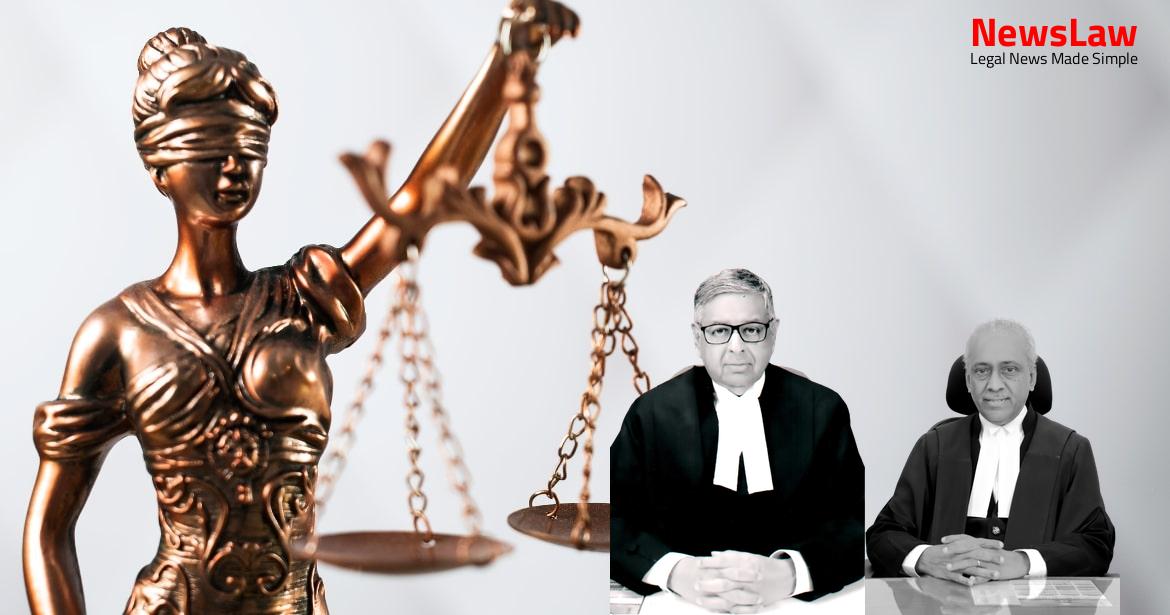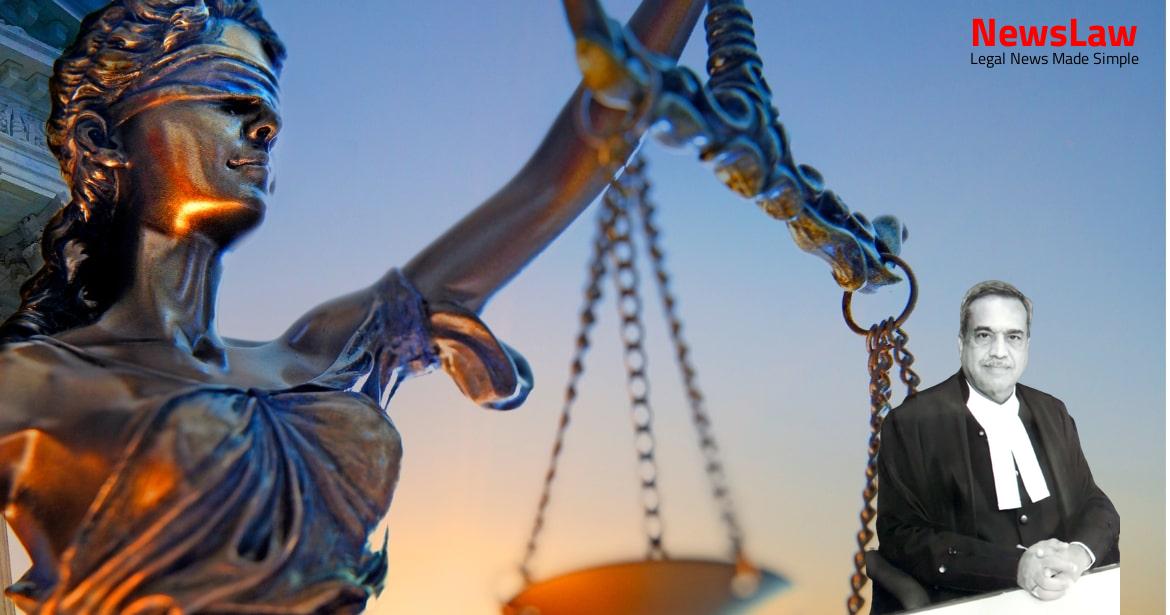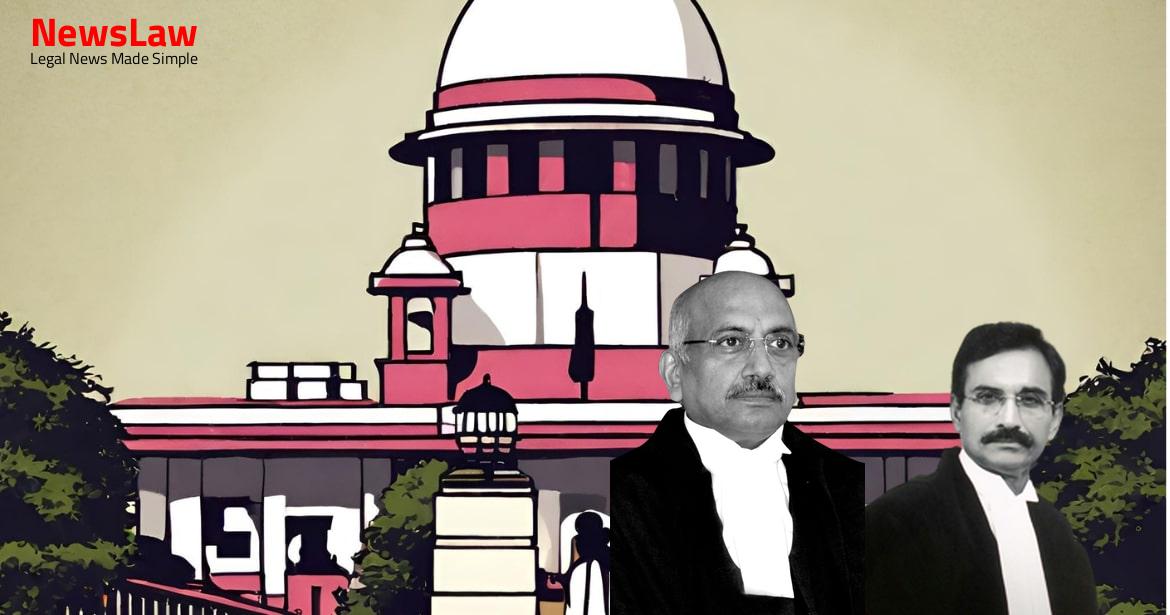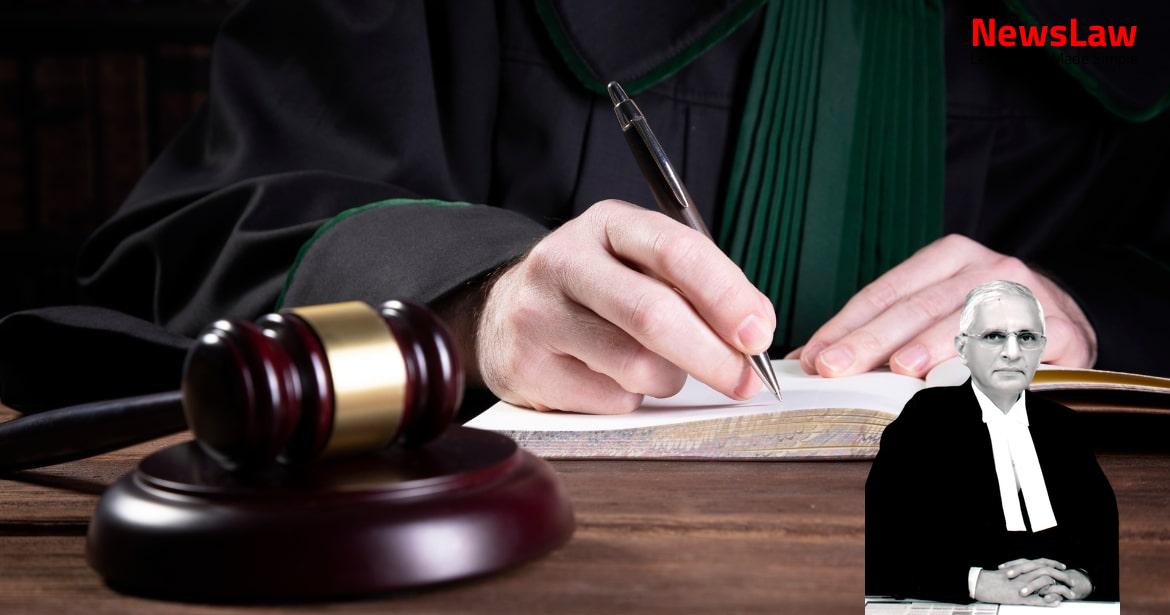In a significant legal development, the Supreme Court of India has delivered a landmark judgment regarding the indecision of the Manipur Speaker on disqualification petitions. The case, involving the appellant and Respondent No 3, sheds light on the necessity of timely decisions under the Tenth Schedule. Stay tuned to understand the implications and outcomes of this crucial ruling.
Facts
- Congress Party emerged as the single largest party with 28 seats, followed by BJP with 21 seats.
- On 29.01.2018, the Appellant filed Writ Petition (C) No.17 of 2018 seeking declaration of disqualification of Respondent No 3.
- The High Court heard the writ petition and posed questions regarding the failure of duty by the Speaker in deciding on the disqualification petitions.
- Questions included whether Respondent No 3 prima facie incurred disqualification and if the High Court has the power to issue a writ of quo warranto.
- A preliminary objection on judicial review was addressed by granting leave to consider the case.
- A Chief Minister-Designate sent a letter to the Governor for administering oath to eight elected MLAs, including Respondent No 3.
- A writ petition was filed by T.N. Haokip urging the High Court to direct the Speaker to decide on the disqualification petition within a reasonable time.
- The High Court declined to grant any relief in the writ petition as the issue was pending before a Constitution Bench of the Supreme Court.
- Since the issue of directing a Speaker to decide a disqualification petition within a certain timeframe was pending before a Bench of 5 Hon’ble Judges of the Supreme Court, the High Court could not pass any order at the time.
- The High Court recognized the Speaker as a quasi-judicial authority who must make a decision within a reasonable time, which should be significantly shorter than five years, the term of the House.
- It was stated that the remedy provided in the Tenth Schedule must be exhausted before approaching the High Court, but if this remedy is ineffective due to deliberate inaction by the Speaker, the Court can issue an appropriate writ to the Speaker.
- The Court’s preliminary objection was dismissed, allowing the writ petition to be heard on its merits.
Also Read: Legal Analysis of Property Occupation in Insolvency Resolution
Arguments
- The Speaker in the present case has deliberately refused to decide the disqualification petitions before him, as evidenced by the lack of a decision until now on petitions filed in April 2017.
- It is argued that judicial review should be applicable to correct indecision by a Speaker, as it may frustrate the purpose of the Tenth Schedule.
- The facts show that disqualification petitions were referred to the Speaker of the Telangana State Legislative Assembly in August 2014, with no decision rendered till date.
- The matter has been referred to the Hon’ble Chief Justice of India to constitute an appropriate Bench for early resolution.
- A Three Judge Bench cannot decide the case and should wait for the judgment of a Five Judge Bench that has already addressed the issue raised.
- The High Court’s view that the Speaker’s decision under the Tenth Schedule is an alternative remedy is contrary to established court judgments.
- There is a plea to issue a writ of quo warranto against the Speaker to declare his usurpation of a constitutional office.
- The question of directing a Speaker to decide a disqualification petition within a certain time needs a definitive decision by a Five Judge Bench.
- The judgment points out the need for judicial review to check defections without contravening the quia timet action as stated in Kihoto Hollohan’s case.
- The arguments made cite relevant legal dictionaries and previous court judgments to support the petition’s requests.
Also Read: Legal Analysis on Physical Ability in Rape Case
Analysis
- Speaker left the question of disqualification undecided in the original order
- Scope of judicial review under Articles 136, 226 and 227 is limited to jurisdictional errors
- A quia timet action was requested to prevent the tort of nuisance
- Necessary ingredients of a quia timet action include proof of imminent danger and substantial apprehended damage
- Recent English decisions define quia timet injunctions as preventative measures
- No quia timet actions permissible in terms of interlocutory disqualifications or suspensions
- The power to decide disputed disqualification under Paragraph 6(1) has a judicial complexion
- Statutory finality in Paragraph 6(1) does not negate judicial review for constitutional violations, mala fides, or perversity
- Quia timet actions aim to prevent future wrongs and safeguard democratic foundations
- The Tenth Schedule was inserted to curb defections motivated by office gains
- The Tenth Schedule does not grant independent power to the Speaker for split or merger decisions
- Quia timet actions are bills in equity aiming to prevent future probable injury to rights or interests
- Judicial review not available for quia timet actions or interlocutory orders before Speaker’s decision
- The judgment in Rajendra Singh Rana clarifies the interpretation of the Tenth Schedule in relation to the failure of a Speaker to exercise jurisdiction.
- The underlined portions of paragraphs 40 and 41 emphasize that the shield under paragraph 6 of the Tenth Schedule does not apply when a Speaker neglects to decide a petition within a reasonable time.
- The decision in S.A. Sampath Kumar is key in establishing that the High Court can intervene through judicial review if a Speaker fails to exercise the jurisdiction vested in them.
- The Speaker’s error in failing to decide on the disqualification petition alongside the petition for recognizing a split is a fundamental error.
- The Tenth Schedule creates a non-justiciable area of rights and obligations, immune from judicial review.
- The Speaker’s misinterpretation of the Tenth Schedule and failure to exercise jurisdiction properly warrants judicial scrutiny.
- The Speaker’s decision on the claimed split and disqualification petitions should have been simultaneous or at least prompt.
- The appointment of a Speaker from a specific political party can lead to bias and questions of impartiality.
- The Tenth Schedule positions the Speaker as the final decision-maker on disqualifications without any recourse to independent review.
- The suggestion is made for a constitutional amendment to assign disqualification adjudication to a neutral tribunal rather than the Speaker.
- The Tenth Schedule needs to be re-evaluated for a fair and impartial resolution of disqualification disputes.
- Political propriety and morality require a candidate set up by a political party to not change affiliations after the election.
- Paragraph 2(1)(a) assumes that candidates should remain with the party that nominated them.
- Paragraph 7’s bar on the jurisdiction of courts may be inoperative, but Paragraph 6(1) still bars court jurisdiction.
- Life of the legislative assembly in Manipur ends in March 2022.
- Speaker of the Manipur Legislative Assembly directed to decide disqualification petitions within four weeks.
- Disqualification under the Tenth Schedule must be decided by the Speaker first.
- Inaction of the Speaker does not warrant the court to decide the disqualification petition.
- The facts in the present case are not similar to Rajinder Singh Rana’s case.
Also Read: Legal Analysis on Admissions and Document Consideration in Insolvency Case
Decision
- Civil Appeals arising out of SLP(C) No 18659 of 2019 and SLP(C) No 18763 of 2019 partly allowed.
- Civil Appeals arising out of SLP(C) No 23703 of 2019 and SLP(C) No. 24146 of 2019 dismissed.
- Impugned judgment of the High Court dated 23.07.2019 set aside.
- If no decision is given after four weeks, parties can apply to the Court for further directions/reliefs.
Case Title: KEISHAM MEGHACHANDRA SINGH Vs. THE HONBLE SPEAKER MANIPUR LEGISLATIVE ASSEMBLY (2020 INSC 65)
Case Number: C.A. No.-000547-000547 / 2020



